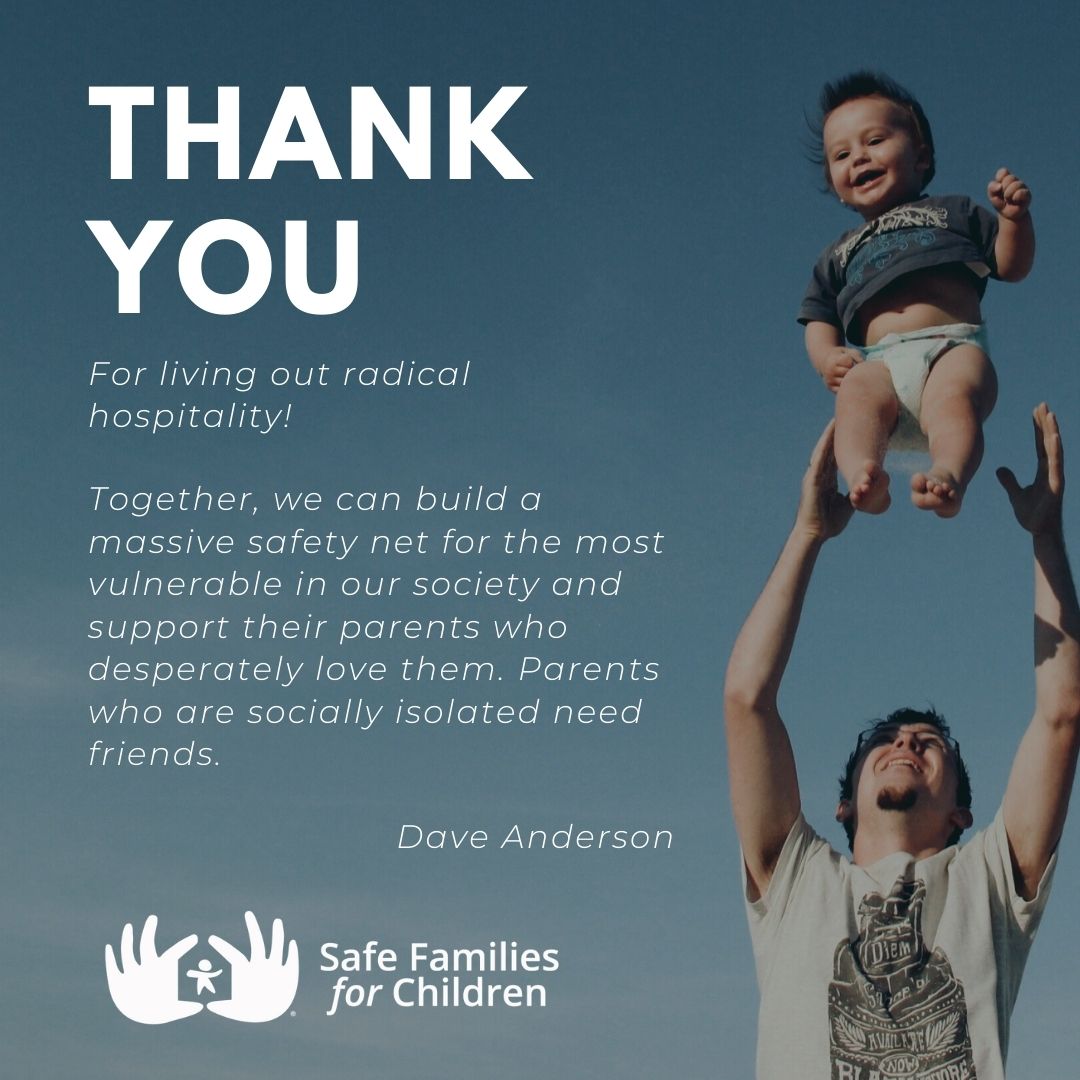During the final week of 2007, Chicago was shocked by the actions of a young mother who quietly exited a train with her three-year-old daughter, leaving her two other sons, ages six and four, behind. Fellow passengers frantically attempted to get the mother’s attention, but she walked away abandoning her two boys. This date was important because a year before, we received a cease and desist order from the Illinois Attorney General requiring us to stop doing Safe Families. This was devastating to me as I thought the Lord gave me the idea of Safe Families to make an impact in the lives of children and their parents. Around the time of this article, the state assembly passed the Short-term Guardianship Act that open the doors for us to restart. The situation above was the very thing we wanted to prevent.
Similar scenarios of parents being unable or unwilling to care for their children because of not having anyone else to turn to occur with greater frequency than many of us are aware. The pandemic has enhanced the challenges many families face.
For those who have been with Safe Families for quite some time, you probably are aware of the passions that first led to its development. Safe Families was launched with the intent to renew the lost art of biblical hospitality. With over 50,000 hostings in the US alone (not counting the UK, Canada, and now Hong Kong), we are witnessing an extraordinary movement of care as families join this wave of hospitality by using their homes to protect children and support parents.
The hospitality of the Bible is dangerous, demanding and deliberate. It is radical, far different from the lifestyle with which we may be accustomed. However, there is a great misunderstanding of hospitality. We often think of inviting friends and family to our homes for food as hospitality, which is more accurately defined as entertaining. Or we may think of the hotel and restaurant industry. Somewhere along the way we have changed and watered down the original meaning of hospitality. The Greek word for hospitality is philoxenia, which means love of strangers. God’s people are commanded to be hospitable. It is not seen as a special gift for a select few people.
As we move out of the pandemic (Chicago fully opens June 11th), the practice of hospitality is needed more than ever. When the Church and people of faith were most fully alive in engaging culture and significantly impacting the “least of these” during the first 5 centuries, the practice of offering care to strangers (hospitality) became a distinguishing mark. They became known for their acts of kindness by caring for babies that were abandoned outside the city because they were of the wrong sex or born deformed, not fleeing the city during pandemics, etc. The Christian writer Tertullian wrote, “It is our care of the helpless, our practice of lovingkindness that brands us in the eyes of many of our opponents.”
Thank you for living out radical hospitality. Together, we can build a massive safety net for the most vulnerable in our society and support their parents who desperately love them. Parents who are socially isolated need friends. That’s how this pattern will be broken. Parents need people who will reach out to them, listen, encourage, laugh, confront, etc., all things that good friends do. Is it easy to befriend a parent? No, not always. They are skeptical, distrusting, and uncertain of your motivation. They don’t want to be seen as a project, trophy, or a program (nor do we). They just want friends. That’s the only way we can help.

